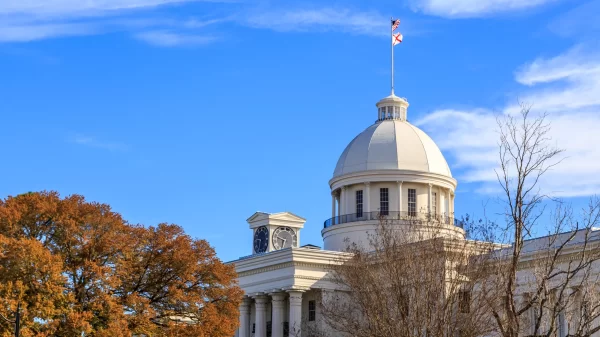By Brandon Moseley
Alabama Political Reporter
Thursday, May 28, the Alabama House of Representatives passed SB71 which reforms the controversial Alabama Accountability Act of 2013. The bill was sponsored by Senate President Pro Tem Del Marsh (R-Anniston) and was carried in the House by Representative Ken Johnson (R-Moulton).
The Alabama Accountability Act allows taxpayers to divert a portion of their income taxes from the Education Trust Fund (ETF) to privately managed non-profit Scholarship Granting Organizations (SGOs) so the SGOs can use that money to award scholarships to students trapped in Alabama’s poorest performing schools. The scholarships allow the student to attend either another public school or a private school that is taking AAA scholarship students.
Representative Johnson said that the bill drops the annual income to qualify down to 185 percent of the Federal poverty level…..the same as for reduced lunch.
Rep. Anthony Daniels (D-Huntsville) said, “I want to thank you for bringing more accountability to the Accountability act.”
Rep. Johnson added two amendments to the bill on the floor that were recommended by the House Ways & Means Education Committee. One excludes special education from being responsible for a school being on the failing to perform list. Johns said that it is not fair to hold them to the same standards. This wording was in an earlier version of the bill but got excluded. Johnson said this narrows it down to those schools that are truly underperforming.
The House rejected an amendment that will lower the scholarship amount by $1000 each to make the scholarships closer to the amount that the state spends on public school students. Families would have had to make up the difference.
Rep. Christopher John England (D-Tuscaloosa) opposed the measure on the grounds that the families could be responsible for up to $1000 per child per year. The people you were actually trying to help will be responsible for and many won’t be able to afford it. They will not be able to afford to take advantage of it anymore and undermines the purpose of it.
State Rep. John Rogers (D-Birmingham) said, “I think this bill (SB71) makes it better. It closes up some loopholes.”
Rep. Laura Hall (D-Huntsville) proposed an amendment to make sure that the State Department of Education keeps data from the schools so that they can know how the students leaving the underperforming schools perform academically in their new schools.
Rep. Merika Coleman-Evans (D-Fairfield) said, “When we pass these bills we want to make sure that there is a positive net impact. This is the responsible thing to do given the amount of money being poured into this program.”
Rep. Ken Johnson accepted the amendment.
Rep. Hall said the Department of education will maintain a database and will annually make reports to the education policy committees of both the House and the Senate.
The legislation passed 68 to 26.
The bill clarifies and confirms that the intent of the Alabama Accountability Act of 2013 is educational choice. It also amends certain current definitions and add new definitions. The reporting period for scholarship granting organizations from a calendar year to an academic year; to clarify and confirm that educational scholarships are provided to eligible students, not to particular schools. The bill requires that scholarship granting organizations determine the income eligibility of a scholarship recipient every other year and requires that all participating private schools to be accredited by one of the six regional accrediting agencies, the National Council for Private School Accreditation, AdvancEd, the American Association of Christian Schools, or one of their partner accrediting agencies, within three years from the date their notice of intent to participate in the scholarship program is filed with the Department of Revenue.
The legislation also allow certain pass-through entities, such as Subchapter S corporations and limited liability companies, to make contributions to scholarship granting organizations and to allow the credit earned by the entity to pass through to and be claimed by its owners, and to expand the definition of “individual taxpayer” to include the individual owners of these pass-through entities. The legislation clarifies and confirms that donors making contributions to scholarship granting organizations cannot earmark their contribution for a particular school or to fund scholarships for a particular student or group of students. The legislation prohibit scholarship granting organizations from making lump sum, block grants, or other similar payments to otherwise qualifying schools. The bill removes the current $7,500 annual limitation on contributions made to scholarship granting organizations by individual taxpayers and increases the cumulative amount of tax credits available in a calendar year to $30,000,000. The bill also allows taxpayers to make contributions to scholarship granting organizations before the due date, with extensions, of a timely filed 2014 tax return but reserve tax credits against the remaining balance of the 2014 cumulative amount of tax credits available. The SGOs may use up to five percent of their revenues from donations for administrative or operating expenses in the year of donation or any subsequent year.
The bill has already been passed by the Senate.





















































